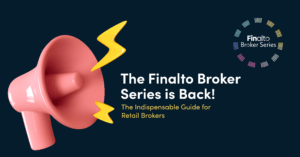FX Brokerage in the UK. Why London? – Guest Editorial
In some of the more prestigious streets in central London, rent averages £85 to £100 per square foot, making a 4,000 square foot office (about average for a medium- sized FX firm) cost anything upwards of £340,000 per month when in other parts of the UK, the prestige and quality of working in Britain with FCA licensing still applies for a fraction of the operating cost

Peter Iosif is a Senior Research Analyst at IronFX, and is a Chartered Accountant (ACA).
Mr. Iosif joined IronFX in 2017 as part of the sales force. He soon moved to the IronFX Strategy team as a Research Analyst. Mr. Iosif has earned a BSc in Business Management from the University of Macedonia (Greece) and continued to become a fully qualified member of the Institute of Chartered Accountants in England and Wales.
In the United Kingdom, retail FX trading differs substantially from any retail FX trading anywhere else in the world.
British tax treatment of retail trading dictates that profits made by non-professional traders on retail platforms fall under the category of ‘betting’ rather than financial gain by trading markets. As a result of this, companies in Britain, or overseas firms offering services to British customers, provide ‘spread betting’ facilities rather than a spot FX trading Environment.
Spread betting is any of various types of wagering on the outcome of an event where the pay-off is based on the accuracy of the wager, rather than a simple “win or lose” outcome, such as fixed-odds (or money-line) betting or parimutuel betting. A spread is a range of outcomes and the bet is whether the outcome will be above or below the spread.

Spread betting has been a major growth market in the UK in recent years, with the number of gamblers heading towards one million.
Financial spread betting can carry a high level of risk if there is no “stop”. As a result of this, the vast majority of British companies operate a b-book.
In the UK, spread betting is regulated by the Financial Conduct Authority rather than the Gambling Commission, however the tax treatment is as though the transaction is a ‘bet’ on currency movements.
By far the largest part of the official market in the UK concerns financial instruments; the leading spread-betting companies make most of their revenues from financial markets, their sports operations being much less significant.
Financial spread betting in the United Kingdom closely resembles the futures and options markets, the major differences being the “charge” occurs through a wider bid-offer spread; spread betting has a different tax regime compared with securities and futures Exchanges.
Spread betting is more flexible since it is not limited to exchange hours or definitions, can create new instruments relatively easily (e.g. individual stock futures), and may have guaranteed stop losses, and the trading is off exchange, with the contract existing directly between the market-making company and the client, rather than exchange-cleared, and is thus subject to a lower level of regulation.
Financial spread betting is a way to speculate on financial markets in the same way as trading a number of derivatives. In particular, contracts for difference (CFD) mirror the spread bet in many ways. In fact, a number of financial derivative trading companies offer both financial spread bets and CFDs in parallel using the same trading platform.
For this reason, British companies develop and offer proprietary platforms rather than offer the MetaTrader 4. This is an expensive business and requires a vast capital base. For example, CMC Markets, which was established by Peter Cruddas in 1989, recently invested £100 million in developing its next-generation trading platform.
This figure is not unusual for brokers of this type in Britain when developing platforms. British brokerages are very domestic-focused, with their markets being mainly in Britain, with some business in nearby European markets such as Germany and France, and very little
business anywhere else globally.
UNITED KINGDOM
In Britain, 81,000 unique traders placed at least one financial spread bet in the 12 months to July 2015, up from 78,000 in 2014.
The retail CFD and FX markets both grew in unison, by 4% each after two years of sustained low volumes across the British market.
The major market share in Britain is held by IG Group (Market cap £2.99 billion), Saxo Capital Markets (Private), CMC Markets (Market cap £821.24 million), Plus500 UK (Market cap £808.52 million), ETX Capital (Private), OANDA Corporation (Private), Hargreaves Lansdown (Market cap £5.89 billion), ADS Securities London (Private but with $400 million capital base).
A widely misunderstood fact is that Hargreaves Lansdown, based in Bristol, which provides the Vantage platform in which clients can manage their entire financial portfolio including FX via HL Markets, Hargreaves Lansdown’s white label partnership with IG Group, from one platform, is the largest financial services firm in the entire country, and its entire client base is British. Office space in London could easily cost £340,000 per month.
International entrants to the UK market automatically think ‘London’ rather than ‘UK’.
It is possible to hear industry executives referring to the Financial Conduct Authority (FCA) regulatory structure as a ‘London license’ when really it is a British regulatory structure for the entire country.
There is no reason why, for example, a MetaTrader 4 brokerage with an FCA license cannot have its registered office in London, and its sales and marketing team in Liverpool, however this absolutely never happens.
Whilst London’s residential and commercial real estate outside of the financial sector is beginning to decline in value, investment in offices in London rose to £8.2 billion in 2015, setting a new record by being significantly higher than the pre-financial crisis figure of £7.5 billion in 2007.
Presence in the UK is necessary for FX firms due to their need to maintain an FCA license, and for liquidity providers and prime brokerage companies due to the standing of London as the world’s institutional FX center, as well as proximity to important commercial partners, however this is an extremely technologically advanced industry and therefore offices in other, less expensive parts of the UK would suffice, and provide the same connectivity via Equinix LD4, as well as have access to the same commercial partners and enable executives to reach meetings in the City.
Indeed, the UK’s FX industry is not only completely London-centric, but is actually Square Mile and Canary Wharf-centric.
In some of the more prestigious streets in central London, rent averages £85 to £100 per square foot, making a 4,000 square foot office (about average for a medium-sized FX firm) cost anything upwards of £340,000 per month.
When considering that the average deposit size from retail customers, according to research by Citigroup, was $6,600 across the world’s 4 million retail FX traders in 2015. Bearing in mind that in the United States, the average account size is higher than the rest of the world, the likelihood is that for a UK customer, $4,000 is about right.
In Dale Street, Liverpool, office space in a very high quality purpose-built office tower, with full service, security and concierge, 5 miles from Liverpool airport and 2.5 hours from Central London by train, costs £12 per square foot.
Liverpool is just one example, however this can be singled out because it has a very good university and therefore some very good undergraduates and post graduates who could work in sales and retention, many of whom come from all over the UK including London, and the salaries would be a fraction of the cost.
Executives from London could easily visit by train when needed and vice versa, and still the savings are immense and suddenly when viewed like this, the cost of acquisition and retention comes down immeasurably.
This office in Central Liverpool is just £1,750 a month for 10 personnel Taking into account liability insurances, travel costs that need to be paid to employees in Central London and the cost of hiring and replacing sales staff due to high staff turnover, it could be considered that the cost of operations could almost be halved by thinking nationally.
Of course, this applies to smaller brokerages that conduct a lot of international business and use MetaTrader 4 rather than the spread betting and CFD giants of the Square Mile. A non-executive level sales person (account manager) in London would earn £5,200 as a salaried employee, with commission raising this, according to our experience to over £8,000 per month.
Going up one level to the prime brokerage sector, and a sales person which sells to brokerages will earn a six -figure annual salary without reaching an executive position. In Cyprus, that would be 75,000 euros per year for the very highest level B2B salesman with very good relationships.
One of the major costs in London today is compliance. Due to the highly technological nature of today’s compliance procedures, bearing in mind that the technological reporting systems have come about only recently, it is very hard to find compliance professionals that understand the business properly and can conduct compliance whilst ensuring that the company does not get fined.
As a result, compliance professionals in London now earn around £1200 per day working on contract which is likely to increase now ESMA’s new regulations have been implemented.
The subject matter and the content of this article are solely the views of the author. FinanceFeeds does not bear any legal responsibility for the content of this article and they do not reflect the viewpoint of FinanceFeeds or its editorial staff.









